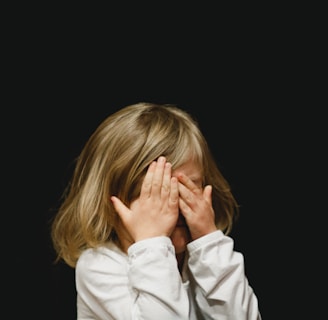Understanding Shame: Its Role in Human Development and Healing
Shame can leave us feeling not enough, or like we've let ourselves or others down. Yet shame isn't just a feeling we have alone. It's like a social alarm that tells us when something might be wrong in our relationships with others. Read on!
ATTACHMENTEMOTIONS
Gabrielle Williams
3/7/20243 min read


Understanding Shame: Its Role in Human Development and Healing
When working with people, I often see feelings of shame get in the way of making change. Someone might believe they are "no good" as a worker, partner, friend, mother or other role, and rather than being able to use this to help guide them towards repair, the emotion can cause them to shut down. When doing a recent course on attachment, my facilitator shared a chapter from American Psychiatrist Judith Herman who has written extensively on shame and the role of shame in relation to ourselves and others.
What is Shame?
Shame isn't just about feeling embarrassed when you do something silly. It's a heavy emotion that makes you feel really bad about yourself. You might feel like you're not good enough or like you've let yourself or others down.
Shame serves as a powerful force shaping our social interactions, self-perception, and emotional well-being. Defined as a painful feeling of humiliation or distress caused by the perception of our own inadequacies, shortcomings, or failures, shame extends beyond mere embarrassment to encompass a profound sense of unworthiness or inferiority.
Shame can come up in many moments in our lives, particularly when we are navigating identity and transitions, such as navigating early parenthood.
Where Does Shame Come From?
Imagine shame as a little seed planted in our early relationships, especially with our caregivers. As we grow up, this seed grows too, affecting how we see ourselves and how we relate to others.
Attachment and Social Dynamics
In her writings on shame, Judith Lewis Herman argues that is emerges from attachment in relationships. Drawing from attachment theory, Herman suggests shame and fear work together as key regulators in our social interactions. Fear dominates in times of violence and significant uncertainty, but shame typically takes place the rest of the time. Shame helps foster emotional attunement and mutual understanding between individuals - by telling us when these things are out of balance. Shame operates a bit like a fear that is specific to our relational safety with others, asking "are we okay?".
Shame's Job in Our Lives
Shame isn't just a feeling we have alone. It's like a social alarm that tells us when something might be wrong in our relationships with others. It helps us figure out where we fit in and how we should behave in our communities.
The Developmental Journey of Shame
As infants evolve into toddlers, they undergo a transformative journey marked by the emergence of shame. Herman elucidates how shame begins to manifest in the second year of life, often in response to subtle disruptions in the attachment bond. These early experiences of shame, rooted in interactions with primary caregivers, lay the groundwork for later social and emotional development. How our parents and caregivers respond to our shame emotions can shape how we carry those feelings into adulthood.
The Social Functions of Shame
Even though we experience it as an emotion in ourselves, shame assumes a crucial role in regulating social dynamics and hierarchies across groups and systems. Scheff and Retzinger describe shame as the "master emotion of everyday life" because it plays such a core role in signaling disruptions in relationships and social norms. From mild experiences of embarrassment to extreme forms of humiliation, shame influences how we perceive ourselves and interact with others within various social contexts.
Dealing with Shame: Understanding Shame Matters
By understanding where our feelings of shame come from and how they affect us, we can learn to be kinder to ourselves and others. We can create spaces where people feel safe to share their struggles without feeling ashamed.
When we've experienced really tough stuff like trauma or abuse, shame can get really big and overwhelming. But talking about our feelings and experiences with someone we trust—like a psychologist—can help shrink that shame and start to feel better about ourselves and our safety in relationships. Through compassionate support and validation, we can begin to heal from the profound wounds inflicted by shame.
You can learn more about being kind to your self when there are feelings of shame by exploring the self compassion break exercise from Dr Kristen Neff.
Wrapping Up
Shame is a big, complicated emotion, but we can learn to deal with it. By being open, understanding, and supportive of each other, we can create a world where shame doesn't hold us back from being our true selves or get in the way of us rebuilding closeness and emotional safety in our relationships with others.
Source: Herman, J. L. (2012). Shattered shame states and their repair. In J. Yellin & K. White (Eds.), Shattered states: Disorganised attachment and its repair (pp. 157–170). Karnac Books.
Gabrielle Williams - 07/03/2024
